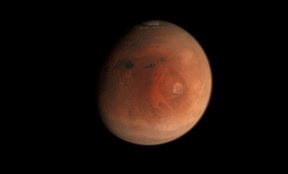You might not have noticed, but July 22 of this year was the second shortest day on record. On July 5 just a couple of weeks before that we experienced the shortest day. And Aug 5 is set to be another day clocking in at under 24 hours in length.
But to be clear, none of this is perceptible to humans without access to a complex array of Earth and space-based instrumentation such as that used by the International Earth Rotation Service (yes, that's a real organisation). We are not talking about the day being shorter by hours, minutes, or even seconds, but by around one or two milliseconds. That's about the same amount of time that it takes the pulsar PSR B1937+21 to complete one rotation – which now I think about it probably isn't the best metaphor when I'm trying to convey just how little time a millisecond is. Millisecond pulsars like PSR B1937+21 spin stupendously quickly. How about this instead. In one millisecond, light travels about 300 km. Hmm, also not a great comparison. Ok, last try. It takes about 300-400 milliseconds just to blink once. Better.
So, what's going on here? Well, when we were kids, we were told that a day was 24 hours, or 86,400 seconds, in length. Turns out, that's not quite the whole story. We can think of 24 hours as being a pretty accurate average, but in reality, the time between sunrises fluctuates by a tiny amount every day. A few billion years ago an Earth day was only about 19 hours, but the tides, driven by the Moon's gravity, act as a bit of a brake on the Earth and slow its rotation. A million years ago, the day was shorter than it is now by about a minute. In fact, since 1972 we've been adding leap seconds, 27 in total, so that our time keeping remains consistent. But things have changed lately, and instead of the days getting longer, they are getting shorter.
The exact cause of the variation in the length of a day is an open question, but there are probably a number of competing elements at play. For starters, climate change is probably having an effect and slowing things down, with the melting of glaciers and redistribution of mass on the Earth's surface affecting its spin. The speed of high-altitude winds varies between summer and winter, which can cause the Earth to spin faster or slower in response. Also at play is the Earth's liquid core that has been slowing down for the past 50 years, causing the solid Earth around it to speed up. And the Earth spins faster when the Moon is above Earth's high latitudes and slower when it is above the equator.
You can do the math on all of that to calculate the exact effect on the spin of the Earth, but you should also be aware that even the International Earth Rotation Service doesn't try and produce the figures more than a year in advance – the system is just too chaotic to be able to determine the relative effect of all the factors at play. But since if the Earth speeds up today, it's likely to keep speeding up tomorrow, short term predictions are possible.
By the way, it's not only the Earth that is spinning faster right now. Mars is as well. The days there, that take an average of about 88,775.244 seconds, are getting shorter by about three quarters of a millisecond every year. That data came from the Mars InSight lander before it finished up in 2022 when its solar panels became so dusty that it could no longer generate enough power to sustain itself. But as with so many science missions, observatories, and experiments that we conduct, we end up with so much data that we are still analysing it years later.
Anyway, we don't know why the days are getting shorter on Mars, but it's likely due to the accumulation of ice at the polar caps. A bit like on Earth, when you move mass around on its surface you affect the planet's spin in some way. Whether the cause turns out to be this or something completely different, this is a good reminder that things in the universe are rarely constant. Not even the length of the day. It just seems that way because we are here for such a short amount of time, relatively speaking.







